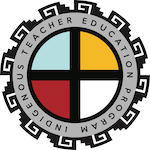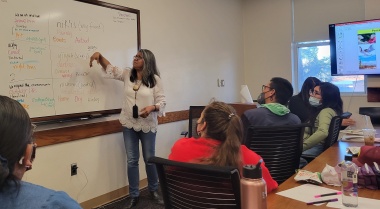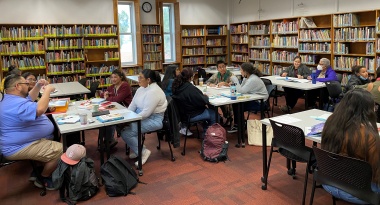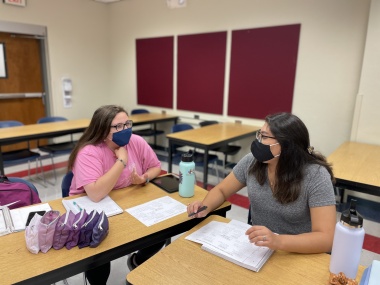ITEP Framework

Teachers as Nation Builders
Teachers as Native Nation-builders: Indigenous teachers who enact autonomy and self-determination in the classroom are teachers who also embrace and embody a responsibility to Indigenous sovereignty and nation-building. ITEP fosters agency within the teacher candidates toward (re)building their communities and promoting sovereignty and self-determination within their Indigenous nations.
Indigenous Knowledge, Values, & Language
Language matters because it holds within it a people’s worldview. At the heart of Indigenous education is the deep relationship Indigenous peoples have to their traditional ways of knowing and being, which then become the basis for curricular and pedagogical interventions that are rooted in Indigenous culture and language. Within ITEP, we find that this process requires a self-reflexive and dialogic experience which then activates and “awakens” a critical Indigenous consciousness and renews relationships with Indigenous knowledge, values, and language. Manulani Aluli Meyer (2008) refers to an awakened consciousness as the process of becoming aware of one’s epistemology in relation to place and people.
Critical Indigenous Theories and Pedagogies
Since the beginning of the 21st century, critical and culturally sustaining Indigenous theories and pedagogies have increasingly informed the field of Indigenous Education. Various scholars have taken up such theories to guide the transformative potential of teaching and learning that is needed to critically examine schooling and to (re)conceptualize the integration of Indigenous knowledge into the education of Indigenous students. Within ITEP, we make use of multiple theories to inform ways to re-imagine curriculum and pedagogy for Indigenous students, families, and communities.
Justice-Centered Education
As such, in ITEP, we work with teacher candidates on developing their content knowledge and their understanding of the role teachers have in envisioning and building transformational change in their communities. This stance by teachers’ active involvement to promote justice and healing within Indigenous communities is an intentional act in developing curriculum around various Indigenous contexts.




